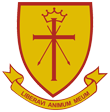In 1964 the first headmaster Peter H. Canham left Bernard Mizeki College and was replaced by Reverend Ronald Glazebrook. Who had been a Chaplain at a girls school in India. Unfortunately he had no experience working in Africa and only served one year and some months and left halfway through the year 1966 and the board had to call in Mr Jimmy Davidson, a retired veteran of the government service, to see the year through as acting headmaster. During the Speech day of 1966 the next headmaster Mr. Andrew Hunt attended to get a feel of the school. Mr Hunt Started his term of office as headmaster of Bernard Mizeki College in January 1967 and immediately set out to work on expanding the school. At the time Father Hunt arrived the college had an enrollment of 190 students. Mr. Hunt himself once said he remembered Fred Snell telling him that 420 boys was the ideal enrollment number at BMC to enable the headmaster to know every boy in the school.
In 1971 the college enrolled its first A level students. The classes were introduced after a few years of hard work, debates, arguments and a bout of cost cutting measures because the Ministry of Educations African Education Department had indicated it would not fund the introduction of Advanced level classes at the school. This was quite a surprising move as the college had been awarded the permission to have Advance levels classes at the time of foundation which was before UDI. The school was then later advised by the ministry under Ian Douglas Smith’s government that they had to re-apply. The Headmaster Father Hunt had to send Mr Richard Ingelesby and Mr Hall to other A Level teaching schools (Chaplin High School and Fletcher High School) to seek advice on how best to introduce Advance Level classes. Despite the negative reports against the move without financial and moral support from the Ministry of Education the headmaster proceeded to introduce A level Physics and Chemistry converting a trunk and luggage room into laboratories Mr. Peter Bazeley did most of the work to redesign the new labs. All this was done without consultation with the Executive Committee.
The current dining hall was constructed under the headmastership of Father Andrew Hunt. Because of the rapidly growing number of students in the school Kapuya Hostel was then built with funds from the Beit Trust and was completed in 1975. This was not enough to ease the accommodation situation in the school the board of governors then decided to use one of the building that had belonged to the primary school. The building was converted to a hostel and named Masemola.
By the time Father Andrew Hunt retired the enrolment had risen to 320 boys, he relocated to Mutare and became board chair for St Davids Bonda in Mutare. Due to the liberation war at that time the expansion of Bernard Mizeki College stalled for a number of years the Ministry was no longer providing funds for the schools expansion. After Father Hunt left, the Rev. Leslie Davies was appointed to the post of Headmaster of Bernard Mizeki College. Unfortunately his term of office did not last long because of the murders of surrounding farmers and a number of priests and nuns at the nearby St. Pauls Musami. After the incident at Musami, the Rev. L. Davies was advised by the local police to leave the school as they could not guarantee his safety and that of the students. The board of governors immediately appointed Mr. Chiadzwa to take over as headmaster of the College avoiding having to completely shutdown the school as other schools like Eagle School in Manicaland had been shut down in the 60s because of the war. Father Davies relocated to Cape Town.
The expansion of Bernard Mizeki College stalled for a number of decades primarily because the Ministry of Education which heavily aided the school had stopped providing funds for the schools expansion and also other well wishers and individuals who had been financing the college had also stopped funding the school that even the planned separate girls school failed to take off. This also initiated a number of years whereby the school went into an identity crisis and operated like a mission school.
In October 1999 the college received a grant of twenty one thousand British pounds from the Beit Trust for the construction of a school hall. Actual construction of the hall commenced in 2000 and was completed in the year 2002.

